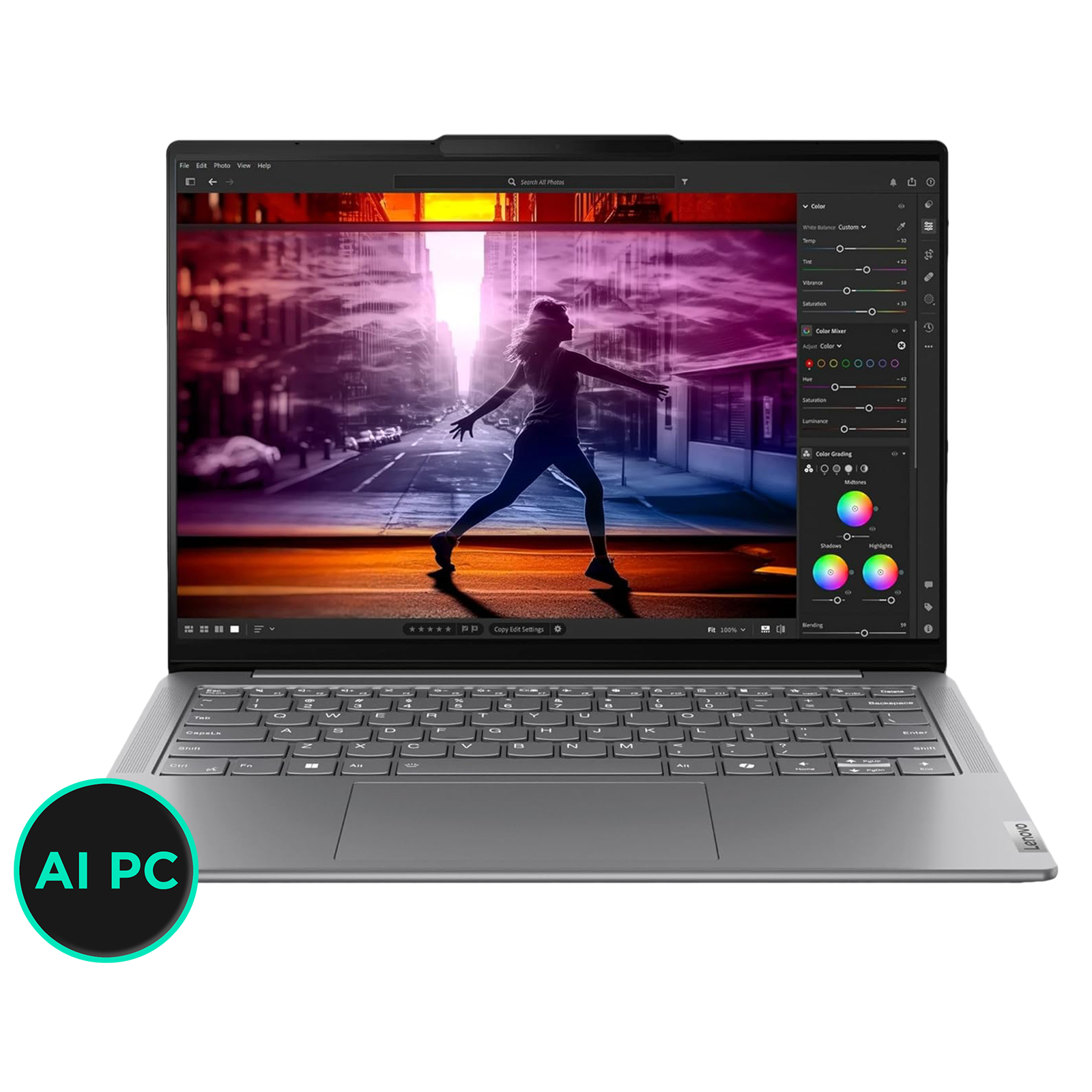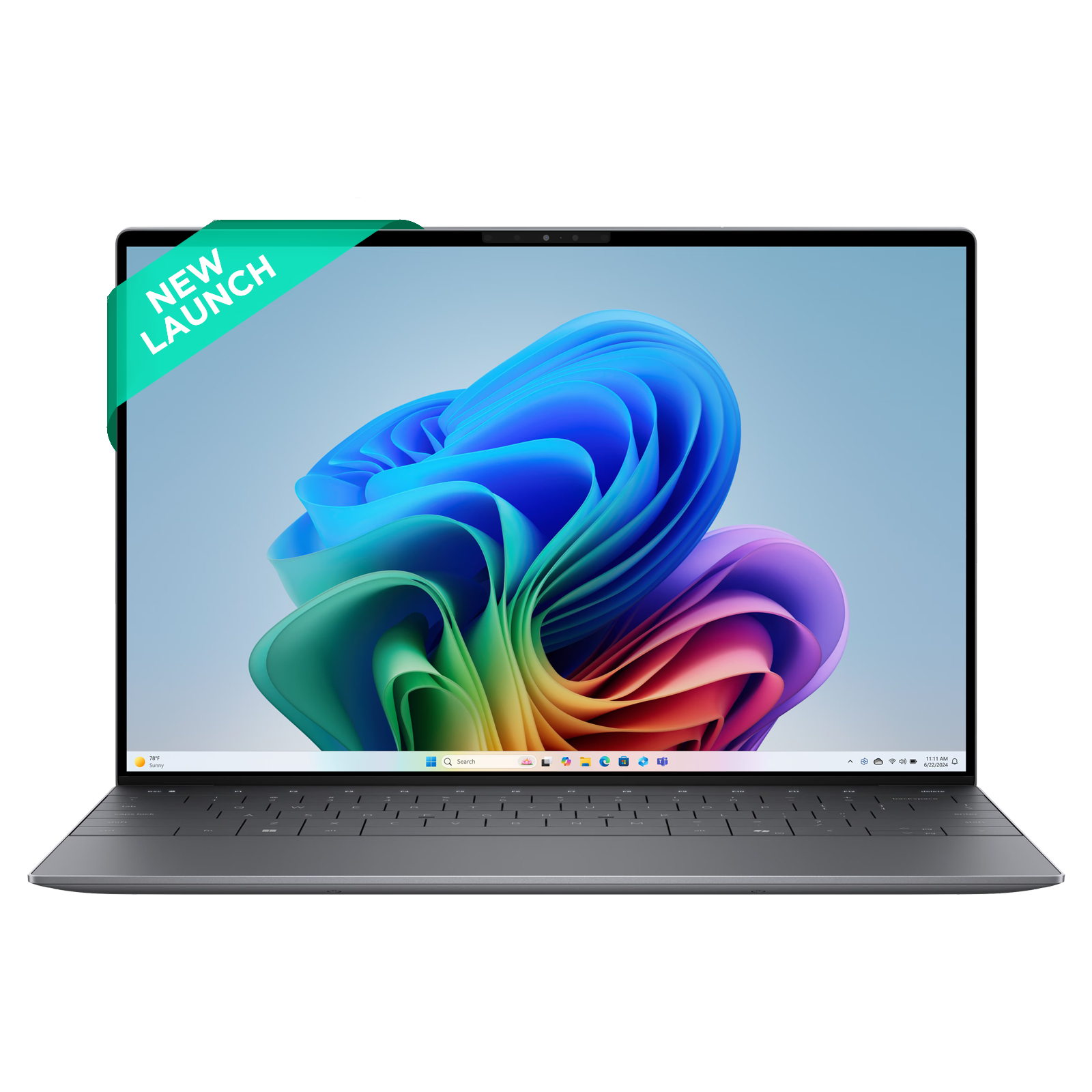Remember when ChatGPT first emerged? What started as a breakthrough in conversational AI quickly revealed a deeper potential for technological transformation. Step into 2024, and a similar transformation is now coming to laptops and desktops. We’re talking about AI PCs — machines that aren’t just smarter, but genuinely more helpful.
These machines aren’t chasing technological flashiness, but are tools designed to solve real-world challenges. Imagine a computer that understands context, adapts to your unique workflow, and handles complex tasks efficiently. That is what the AI PC is set to become.
While we aren’t quite there yet, AI PCs saw a significant evolution in 2024 alone. With the year now coming to an end, now is the right time to recap the AI PC timeline and see how these computers changed over the past year. But before we do that, a crash-course on the topic of the hour for the uninitiated.
What are AI PCs and what makes them different?
AI PCs may look like any of the laptops and desktops we’ve been using all these years, but it’s what’s inside them and what they can do that separates them from the rest. We have a detailed guide on understanding AI PCs, but a TL;DR version follows:
A standard PC is powered by two central components – a CPU and a GPU. But an AI PC has an additional component called the Neural Processing Unit or an NPU. This NPU is responsible for handling the AI tasks, thereby taking the load off the GPU (which is the component that usually does this stuff) in a process that’s called offloading.
Having a dedicated component to offload AI tasks has a key perk – allowing the CPU and GPU to focus on other tasks which results in a boost in performance. This is what helps AI PCs perform better than regular PCs.
How AI PCs grew more powerful this year
There were a few milestones we can look back at to track how AI PCs changed this year.
Consumer-ready AI PCs with on-device AI hit the market
While you could run AI models on computers in theory before, consumer-ready AI PCs were little more than a concept before 2024. However, with the launch of Intel’s Core Ultra series of processors, a lot changed. All eyes were now on the NPU-powered PCs by Intel, and the shiny new product series that replaced the usual Core-series of products by Intel.
This was followed by AMD launching its own AI-powered chipsets and then a few months later, Qualcomm’s range of ARM-based AI-powered chips. With the market flooded with AI-powered processors to choose from, several brands like HP, Dell and Asus could now finally make PCs around them, bringing the first market-ready AI PCs to life.
Democratisation of AI PCs – cheaper AI PCs for everyone
Remember when the first 5G smartphones hit the market? They were expensive flagship devices that cost as much as two affordable phones (if not more). However, AI PCs didn’t really follow the same trajectory this year.
ALSO READ: Your first post-pandemic laptop will be an AI PC
With Intel’s Core Ultra being launched in Core Ultra 5, Core Ultra 7 and Core Ultra 9 versions, laptops across multiple segments could sport the AI capabilities. This tied in perfectly with the time for all pandemic PC buyers to upgrade to their next laptops.
Windows and macOS take significant steps towards native AI tools
Be it Copilot on Windows or Apple Intelligence on mac-based machines, native support for AI features has been something several brands have experimented with this year. While we have no verdict on which side did a better job, it’s safe to say that AI PC users across both platforms have benefitted.
Windows integrates Copilot (the chatbot) deeply into the operating system and allows users to talk to and do things directly like change system settings, and more. Meanwhile, Apple Intelligence on macOS lets users quickly rewrite text in any app, summarise notifications and more, all of which also leverages Apple’s popular ecosystem features. These features make it easier for users to use AI PCs and see the benefits in real-time.
An explosion of AI PC use-cases
This year, AI PCs also moved on from being the latest tech product enthusiasts cared about to a practical tool that powered several industries.
In creative industries for instance, AI PCs have become indispensable tools for content creators and designers. Graphic designers now leverage on-device AI to generate initial design concepts, remove backgrounds, and make sophisticated image edits in real-time.
Video editors use AI-powered rendering and enhancement tools that dramatically reduce processing times, while musicians employ AI assistants to help with composition, suggest chord progressions, and even generate background instrumental tracks. Photographers benefit from AI-driven photo editing that can intelligently adjust lighting, remove imperfections, and even suggest optimal colour grading – all processed locally on their devices without cloud dependency.
The professional and academic sectors have seen equally transformative impacts. Researchers can now run complex data analysis models directly on their laptops, with AI assistants helping to interpret results and suggest research directions. Business professionals use AI PCs to draft reports, create presentations, and generate data visualizations with minimal manual input.
In fields like architecture and engineering, AI-powered local rendering and simulation tools allow for complex 3D modelling and stress analysis to be conducted on standard laptops. Language professionals leverage real-time translation and writing assistance, while educators use AI to help develop curriculum materials, generate quiz questions, and provide personalised learning content – all processed securely and privately on their local machines.
What’s next for AI PCs?
We’ve come a long way, and 2025 is looking like the year AI PCs stop being just another gadget and start feeling like that sci-fi sidekick you always wanted. Imagine the guy in the chair – like Ned Leeds from the Spider-Man movies.
Imagine this: Your everyday work laptop knows exactly when you need a coffee break, when you’re about to hit creative burnout, and can help you dig out of a project rabbit hole. We’re talking about machines that don’t just process – they understand.
Designers might get something useful from their AI PC – like when you’re stuck and the machine suggests a colour combination that makes you go, ‘Huh, that’s not bad.’ For writers, we’re talking about an assistant that gets beyond just red lining your typos and catch the vibe of what you’re trying to say.
For those concerned about privacy (all of us every now-and-then), these AI PCs will also go local. Forget cloud processing – we’re looking at some serious on-device magic that keeps your data yours. No more wondering if some random server is scanning your vacation photos or work documents.
ALSO READ: How to find out if your laptop is an AI PC
And the best part? This isn’t some far-off dream. We’re talking about incremental, useful upgrades that make technology feel less like a tool and more like an extension of how we think and work.
While the year 2025 may not give us an AI version of what Alfred is to Batman, expect to certainly see some steps taken in that direction.
Unleash your inner geek with Croma Unboxed
Subscribe now to stay ahead with the latest articles and updates
You are almost there
Enter your details to subscribe

Happiness unboxed!
Thank you for subscribing to our blog.
Disclaimer: This post as well as the layout and design on this website are protected under Indian intellectual property laws, including the Copyright Act, 1957 and the Trade Marks Act, 1999 and is the property of Infiniti Retail Limited (Croma). Using, copying (in full or in part), adapting or altering this post or any other material from Croma’s website is expressly prohibited without prior written permission from Croma. For permission to use the content on the Croma’s website, please connect on contactunboxed@croma.com
- Related articles
- Popular articles



















Chetan Nayak
Comments